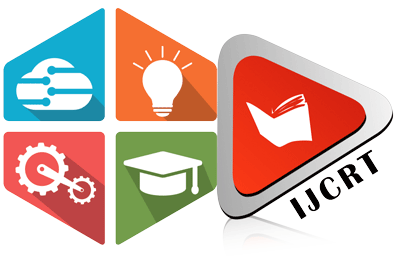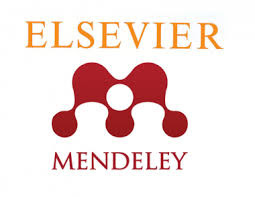INTERNATIONAL JOURNAL OF CREATIVE RESEARCH THOUGHTS - IJCRT (IJCRT.ORG)
International Peer Reviewed & Refereed Journals, Open Access Journal
ISSN Approved Journal No: 2320-2882 | Impact factor: 7.97 | ESTD Year: 2013
Call For Paper - Volume 12 | Issue 7 | Month- July 2024
Scholarly open access journals, Peer-reviewed, and Refereed Journals, Impact factor 7.97 (Calculate by google scholar and Semantic Scholar | AI-Powered Research Tool) , Multidisciplinary, Monthly, Indexing in all major database & Metadata, Citation Generator, Digital Object Identifier(DOI)
Contact Us Click Here
WhatsApp Contact Click Here
Volume 12 | Issue 5 |
| IJCRT Journal front page | IJCRT Journal Back Page |
Paper Title: "HELPING HAND DONATION SYSTEM"
Author Name(s): Prof. Shital Jade, Ms. Sakshi Babar, Ms. Gayatri Sanap, Ms. Sakshi Pande
Published Paper ID: - IJCRTAF02059
Register Paper ID - 261066
Publisher Journal Name: IJPUBLICATION, IJCRT
DOI Member ID: 10.6084/m9.doi.one.IJCRTAF02059 and DOI :
Author Country : Indian Author, India, - , -, - , | Research Area: Science and Technology Published Paper URL: http://ijcrt.org/viewfull.php?&p_id=IJCRTAF02059 Published Paper PDF: download.php?file=IJCRTAF02059 Published Paper PDF: http://www.ijcrt.org/papers/IJCRTAF02059.pdf
Your Paper Publication Details:
Title: "HELPING HAND DONATION SYSTEM"
DOI (Digital Object Identifier) :
Pubished in Volume: 12 | Issue: 5 | Year: May 2024
Publisher Name : IJCRT | www.ijcrt.org | ISSN : 2320-2882
Subject Area: Science and Technology
Author type: Indian Author
Pubished in Volume: 12
Issue: 5
Pages: 294-299
Year: May 2024
Downloads: 20
E-ISSN Number: 2320-2882
Abstract
Facilitating charitable contributions has always been a challenge, but the Helping Hand Donation System Application offers an efficient answer. This innovative mobile software makes it simple and convenient for people to practice generosity. The application's user-centric design allows contributors to securely make provides with a few clicks while also exploring a variety of charity causes, organizations, and campaigns. A revolutionary project, the Helping Hand Donation System aims to improve and simplify the act of making charitable contributions. With an emphasis on effect, simplicity, and openness, our system offers contributors a smooth way to make contributions to different organizations and causes. Donors can simply make one-time or ongoing contributions with ease through user-friendly interfaces and safe payment choices, all while knowing that their contributions are actually improving the lives of others. Because actual time accounting and monitoring systems allow contributors to see the immediate results of their contributions, they promote openness and responsibility. Furthermore, social media sharing features empower contributors to motivate others and magnify their influence, establishing a community of empathy and solidarity. The Helping Hand Donation System utilizes technology to enable significant relationships between donors and beneficiaries, with an aim of enabling people to make an impact on the world.
Licence: creative commons attribution 4.0
License
Keywords
Donation, Charitable Organization, Donors, Beneficiary, Android
License
Paper Title: Healthcare Chatbot on Hospital Management System
Author Name(s): Sopan Kshirsagar, Yashraj Patel, Minal Pawar, Pratik Pawar
Published Paper ID: - IJCRTAF02058
Register Paper ID - 261067
Publisher Journal Name: IJPUBLICATION, IJCRT
DOI Member ID: 10.6084/m9.doi.one.IJCRTAF02058 and DOI :
Author Country : Indian Author, India, - , -, - , | Research Area: Science and Technology Published Paper URL: http://ijcrt.org/viewfull.php?&p_id=IJCRTAF02058 Published Paper PDF: download.php?file=IJCRTAF02058 Published Paper PDF: http://www.ijcrt.org/papers/IJCRTAF02058.pdf
Your Paper Publication Details:
Title: HEALTHCARE CHATBOT ON HOSPITAL MANAGEMENT SYSTEM
DOI (Digital Object Identifier) :
Pubished in Volume: 12 | Issue: 5 | Year: May 2024
Publisher Name : IJCRT | www.ijcrt.org | ISSN : 2320-2882
Subject Area: Science and Technology
Author type: Indian Author
Pubished in Volume: 12
Issue: 5
Pages: 290-293
Year: May 2024
Downloads: 26
E-ISSN Number: 2320-2882
Abstract
A ground-breaking project that has the potential to completely transform the way healthcare is provided in hospital settings is the Healthcare Chatbot for Hospital Management System, which makes use of the Dialogflow Framework. By utilizing the state-of-the-art natural language processing features built into the Dialogflow framework, this creative chatbot acts as a clever intermediary that significantly improves the effectiveness, accessibility, and efficiency of hospital administration systems. This chatbot is essentially a shining example of technology progress, blending in seamlessly with medical infrastructures already in place to maximize a multitude of crucial features. This intuitive interface redefines administrative efficiency by easing the complex dance of appointment scheduling, rescheduling, and cancellations as well as coordinating the symphony of patient flow management. With the help of this revolutionary technology, patients--the beating heart of every healthcare system--are given unprecedented empowerment. All things considered, the Healthcare Chatbot for Hospital Management System is not only an incredible technological achievement, but also a sign of optimism and advancement for the medical field. It is proof of the boundless potential of human intellect and is driving a paradigm shift toward a day when healthcare will not only be widely available but also really transformational. For patients, doctors, and communities alike, the chatbot opens the door to a better, healthier future with every contact, question, and answer it receives.
Licence: creative commons attribution 4.0
License
Keywords
natural language processing, healthcare, chatbots, dialogflow, and hospital management systems
License
Paper Title: Hand gesture Based Virtual Mouse using Machine learning
Author Name(s): Neha Bhagwat, Mansi Dusane, Moinoddin Inamdar
Published Paper ID: - IJCRTAF02057
Register Paper ID - 261068
Publisher Journal Name: IJPUBLICATION, IJCRT
DOI Member ID: 10.6084/m9.doi.one.IJCRTAF02057 and DOI :
Author Country : Indian Author, India, - , -, - , | Research Area: Science and Technology Published Paper URL: http://ijcrt.org/viewfull.php?&p_id=IJCRTAF02057 Published Paper PDF: download.php?file=IJCRTAF02057 Published Paper PDF: http://www.ijcrt.org/papers/IJCRTAF02057.pdf
Your Paper Publication Details:
Title: HAND GESTURE BASED VIRTUAL MOUSE USING MACHINE LEARNING
DOI (Digital Object Identifier) :
Pubished in Volume: 12 | Issue: 5 | Year: May 2024
Publisher Name : IJCRT | www.ijcrt.org | ISSN : 2320-2882
Subject Area: Science and Technology
Author type: Indian Author
Pubished in Volume: 12
Issue: 5
Pages: 283-289
Year: May 2024
Downloads: 30
E-ISSN Number: 2320-2882
Abstract
This paper suggests a new method for controlling the cursor that uses hand movements that can be easily recorded by a regular webcam in place of the conventional mouse. This facilitates a hands-free user experience by doing away with the requirement for a physical device. The technology makes use of the webcam's capabilities to track hands accurately. It does more than just mimic hand gestures, though. Certain hand movements will be created for different functions, like dragging and left and right clicks. This allows users to use the cursor and its functionalities in a natural and simple way. For the system to be implemented as described, Python and OpenCV are required. These models, which mimic the swaying motion of human hand movements, have the potential to greatly improve the usability of such computer vision solutions. The world of technology nowadays is always changing due to the abundance of technologies. One such intriguing idea is the human-machine interface. The idea basic this is called signal acknowledgment, which is a technique for reproducing mouse functionalities on a screen without the requirement for any equipment.
Licence: creative commons attribution 4.0
License
Keywords
Gesture Control Virtual Mouse, Virtual Mouse, Hand Gestures, OpenCV
License
Paper Title: GourmetGuide: Implementing Real-Time Recommendation Systems for Contextually-Aware Dining Experiences
Author Name(s): Arjun Haghwane, Vinay Ippili, Mithilesh Jogale, Prof. Smita Thube
Published Paper ID: - IJCRTAF02056
Register Paper ID - 261069
Publisher Journal Name: IJPUBLICATION, IJCRT
DOI Member ID: 10.6084/m9.doi.one.IJCRTAF02056 and DOI :
Author Country : Indian Author, India, - , -, - , | Research Area: Science and Technology Published Paper URL: http://ijcrt.org/viewfull.php?&p_id=IJCRTAF02056 Published Paper PDF: download.php?file=IJCRTAF02056 Published Paper PDF: http://www.ijcrt.org/papers/IJCRTAF02056.pdf
Your Paper Publication Details:
Title: GOURMETGUIDE: IMPLEMENTING REAL-TIME RECOMMENDATION SYSTEMS FOR CONTEXTUALLY-AWARE DINING EXPERIENCES
DOI (Digital Object Identifier) :
Pubished in Volume: 12 | Issue: 5 | Year: May 2024
Publisher Name : IJCRT | www.ijcrt.org | ISSN : 2320-2882
Subject Area: Science and Technology
Author type: Indian Author
Pubished in Volume: 12
Issue: 5
Pages: 277-282
Year: May 2024
Downloads: 29
E-ISSN Number: 2320-2882
Abstract
In the present carefully interconnected world, recommendation systems have become basic devices for directing clients to customized content and administrations. This paper presents an original proposal system that coordinates planning innovation to propose custom fitted ideas in view of client inclinations and geographic setting. By joining the force of suggestion calculations with constant area information recovered from planning APIs, our system conveys dynamic proposals that adjust to clients' ongoing environmental elements. The system uses AI strategies to investigate client requirements, authentic area information, and context-oriented data to produce pertinent and convenient ideas. Through this mix of proposal system with planning innovation, we mean to change the manner in which clients find and investigate new spots and encounters in their environmental elements.
Licence: creative commons attribution 4.0
License
Keywords
Recommendation, Machine Learning, Reviews, Natural Language Processing, APIs.
License
Paper Title: Finding Purchase Intentions using Social Media Implementation
Author Name(s): Prof. Sonu Khapekar, Rokade Jayesh, Shaikh Irfan, Patil Vaishnavi
Published Paper ID: - IJCRTAF02055
Register Paper ID - 261076
Publisher Journal Name: IJPUBLICATION, IJCRT
DOI Member ID: 10.6084/m9.doi.one.IJCRTAF02055 and DOI :
Author Country : Indian Author, India, - , -, - , | Research Area: Science and Technology Published Paper URL: http://ijcrt.org/viewfull.php?&p_id=IJCRTAF02055 Published Paper PDF: download.php?file=IJCRTAF02055 Published Paper PDF: http://www.ijcrt.org/papers/IJCRTAF02055.pdf
Your Paper Publication Details:
Title: FINDING PURCHASE INTENTIONS USING SOCIAL MEDIA IMPLEMENTATION
DOI (Digital Object Identifier) :
Pubished in Volume: 12 | Issue: 5 | Year: May 2024
Publisher Name : IJCRT | www.ijcrt.org | ISSN : 2320-2882
Subject Area: Science and Technology
Author type: Indian Author
Pubished in Volume: 12
Issue: 5
Pages: 271-276
Year: May 2024
Downloads: 30
E-ISSN Number: 2320-2882
Abstract
Recently, there has been a significant increase in the ecommerce industry, specifically in people purchasing goods online. A lot of research has been conducted to determine a user's purchasing patterns and, more importantly, the factors that determine whether or not the user will purchase the product. In this study, we will investigate whether it is possible to identify and predict a user's purchase intention for a product, and then target that user with a personalized advertisement or deal. Furthermore, we hope to create software that will assist businesses in identifying potential customers for their products by estimating their purchase intention in measurable terms based on their tweets and user profiles on Twitter. We have discovered that it is possible to predict whether or not a user has expressed a desire to buy a product after applying various text analytical models to tweet data. Additionally, our analysis has shown that the majority of users who had initially expressed a desire to buy the product have also purchased it.
Licence: creative commons attribution 4.0
License
Keywords
Natural Language Processing, Product, Purchase Intention, Tweets, Twitter
License
Paper Title: AI-Powered Inventory Management System: IntelliStock
Author Name(s): Pritam Ahire, Adarsh Biju Nair, Prathamesh Sandeep Nalawade, Nishant Vinod Patil
Published Paper ID: - IJCRTAF02054
Register Paper ID - 261077
Publisher Journal Name: IJPUBLICATION, IJCRT
DOI Member ID: 10.6084/m9.doi.one.IJCRTAF02054 and DOI :
Author Country : Indian Author, India, - , -, - , | Research Area: Science and Technology Published Paper URL: http://ijcrt.org/viewfull.php?&p_id=IJCRTAF02054 Published Paper PDF: download.php?file=IJCRTAF02054 Published Paper PDF: http://www.ijcrt.org/papers/IJCRTAF02054.pdf
Your Paper Publication Details:
Title: AI-POWERED INVENTORY MANAGEMENT SYSTEM: INTELLISTOCK
DOI (Digital Object Identifier) :
Pubished in Volume: 12 | Issue: 5 | Year: May 2024
Publisher Name : IJCRT | www.ijcrt.org | ISSN : 2320-2882
Subject Area: Science and Technology
Author type: Indian Author
Pubished in Volume: 12
Issue: 5
Pages: 267-270
Year: May 2024
Downloads: 33
E-ISSN Number: 2320-2882
Abstract
IntelliStock is an intelligent assistant designed to help store managers manage inventory efficiently. By leveraging natural language processing, IntelliStock can provide store managers with real-time inventory updates, track product movements, and generate insights for better inventory. With the ability to understand and answer questions in natural language, IntelliStock streamlines the inventory management process, allowing store managers to make quick decisions. This case study explores the development and implementation of IntelliStock and highlights its benefits for businesses looking to improve their inventory management processes.
Licence: creative commons attribution 4.0
License
Keywords
Generative AI, Natural Language Processing, Inventory Management System, SQL, Case Study
License
Paper Title: Facial Emotion Detection Using Machine Learning
Author Name(s): Prof. Sopan Kshirsagar, Harshad Shinde, Salman Shikalgar, Ruturaj Raut
Published Paper ID: - IJCRTAF02053
Register Paper ID - 261080
Publisher Journal Name: IJPUBLICATION, IJCRT
DOI Member ID: 10.6084/m9.doi.one.IJCRTAF02053 and DOI :
Author Country : Indian Author, India, - , -, - , | Research Area: Science and Technology Published Paper URL: http://ijcrt.org/viewfull.php?&p_id=IJCRTAF02053 Published Paper PDF: download.php?file=IJCRTAF02053 Published Paper PDF: http://www.ijcrt.org/papers/IJCRTAF02053.pdf
Your Paper Publication Details:
Title: FACIAL EMOTION DETECTION USING MACHINE LEARNING
DOI (Digital Object Identifier) :
Pubished in Volume: 12 | Issue: 5 | Year: May 2024
Publisher Name : IJCRT | www.ijcrt.org | ISSN : 2320-2882
Subject Area: Science and Technology
Author type: Indian Author
Pubished in Volume: 12
Issue: 5
Pages: 263-266
Year: May 2024
Downloads: 21
E-ISSN Number: 2320-2882
Abstract
Looks assume an imperative part in human correspondence as they act as a window to our emotions. The project focuses on the creation of an emotion identification system in real time capable of documenting a wide range of human moods. To achieve this, a combination of machine learning and deep learning algorithms is leveraged to create various models. The centre of this venture lies in the improvement of use programming, which uses strong Python bundles. Key libraries like Keras, OpenCV, and Matplotlib are tackled to make an ongoing feeling acknowledgment framework By training these models, the system becomes adept at detecting diverse human emotions, creating it a flexible device that can be carried out across different stages. At its heart, this venture is an investigation of the capabilities of profound learning and AI to precisely recognize and archive human feelings continuously, subsequently upgrading relational correspondence.
Licence: creative commons attribution 4.0
License
Keywords
Facial Emotion detection, Deep learning, Knowledge graphs, Machine learning, Mental health, Early detection, Data integration, Real-time sensing, Image processing
License
Paper Title: Exploring the relationship between facial expressions and music preferences
Author Name(s): Prof. Renuka Kajale, Ayushi Kale, Asawari Khairnar, Vaishnavi Mavale
Published Paper ID: - IJCRTAF02052
Register Paper ID - 261082
Publisher Journal Name: IJPUBLICATION, IJCRT
DOI Member ID: 10.6084/m9.doi.one.IJCRTAF02052 and DOI :
Author Country : Indian Author, India, - , -, - , | Research Area: Science and Technology Published Paper URL: http://ijcrt.org/viewfull.php?&p_id=IJCRTAF02052 Published Paper PDF: download.php?file=IJCRTAF02052 Published Paper PDF: http://www.ijcrt.org/papers/IJCRTAF02052.pdf
Your Paper Publication Details:
Title: EXPLORING THE RELATIONSHIP BETWEEN FACIAL EXPRESSIONS AND MUSIC PREFERENCES
DOI (Digital Object Identifier) :
Pubished in Volume: 12 | Issue: 5 | Year: May 2024
Publisher Name : IJCRT | www.ijcrt.org | ISSN : 2320-2882
Subject Area: Science and Technology
Author type: Indian Author
Pubished in Volume: 12
Issue: 5
Pages: 259-262
Year: May 2024
Downloads: 34
E-ISSN Number: 2320-2882
Abstract
This research project aims to investigate the intricate relationship between facial expressions and music preferences. Music has a profound impact on human emotions and behavior, often evoking a wide range of feelings such as happiness, sadness, excitement, and relaxation. Similarly, facial expressions serve as a primary means of nonverbal communication, reflecting one's emotional state and reactions to external stimuli. By examining how facial expressions correlate with individuals' preferences for different genres, styles, and specific pieces of music, this study seeks to uncover underlying patterns and mechanisms governing the emotional response to music. The methodology involves collecting data through surveys and experimental sessions where participants listen to various musical pieces while their facial expressions are recorded using facial recognition technology. Participants will be asked to rate their emotional response to each piece of music, providing insights into their subjective preferences. Additionally, demographic information such as age, gender, cultural background, and musical background will be gathered to explore potential correlations with music preferences and facial expressions. The findings of this research could have implications for various domains including psychology, neuroscience, marketing, and entertainment. Understanding how facial expressions and music preferences interact can inform the design of personalized music recommendations, therapeutic interventions for mood disorders, and the creation of more emotionally engaging multimedia content.
Licence: creative commons attribution 4.0
License
Keywords
Music, Expression, Emotion, Multimedia
License
Paper Title: Exploring Adversarial Attacks and Defenses on Machine Learning
Author Name(s): Prof. Shital Jade, Vipul Chaudhari, Aditya Kadam, Janhavi Chaudhari
Published Paper ID: - IJCRTAF02051
Register Paper ID - 261083
Publisher Journal Name: IJPUBLICATION, IJCRT
DOI Member ID: 10.6084/m9.doi.one.IJCRTAF02051 and DOI :
Author Country : Indian Author, India, - , -, - , | Research Area: Science and Technology Published Paper URL: http://ijcrt.org/viewfull.php?&p_id=IJCRTAF02051 Published Paper PDF: download.php?file=IJCRTAF02051 Published Paper PDF: http://www.ijcrt.org/papers/IJCRTAF02051.pdf
Your Paper Publication Details:
Title: EXPLORING ADVERSARIAL ATTACKS AND DEFENSES ON MACHINE LEARNING
DOI (Digital Object Identifier) :
Pubished in Volume: 12 | Issue: 5 | Year: May 2024
Publisher Name : IJCRT | www.ijcrt.org | ISSN : 2320-2882
Subject Area: Science and Technology
Author type: Indian Author
Pubished in Volume: 12
Issue: 5
Pages: 252-258
Year: May 2024
Downloads: 27
E-ISSN Number: 2320-2882
Abstract
Machine learning (ML) algorithms have demonstrated remarkable success across various domains, revolutionizing industries and enabling advancements in artificial intelligence (AI). However, the increasing deployment of ML models in critical applications has attracted attention to their vulnerability to adversarial attacks. These attacks exploit weaknesses in ML models to manipulate their behavior, posing significant threats to their reliability, security, and trustworthiness. In this study, we delve into the landscape of adversarial attacks and defenses in machine learning, aiming to understand the underlying mechanisms, assess the effectiveness of existing defense strategies, and propose novel approaches to enhance model robustness. We survey the diverse range of attack methodologies, including gradient-based methods, evolutionary algorithms, and physical-world attacks, that adversaries employ to undermine ML systems. Furthermore, we investigate state-of-the-art defense mechanisms designed to mitigate the impact of adversarial attacks, such as adversarial training, input preprocessing, and model regularization. By analyzing the strengths and limitations of these defense techniques, we identify opportunities for improvement and explore interdisciplinary insights from fields like cybersecurity, cognitive psychology, and game theory. Through empirical evaluations on benchmark datasets and real-world applications, we aim to provide comprehensive insights into the dynamic interplay between attacks and defenses in machine learning. Our findings contribute to advancing the understanding of adversarial phenomena in ML and guiding the development of resilient AI systems capable of withstanding adversarial challenges in diverse operational environments.
Licence: creative commons attribution 4.0
License
Keywords
Machine Learning, Adversarial Attacks, Defense Mechanisms, Robustness Security, Adversarial Examples, Gradient-based Method, Adversarial Training Model Robustness.
License
Paper Title: Enhancing Timetable Generation Through Machine Learning
Author Name(s): Prof.Rupali Kaldoke, Gagan Matkar, Gaurav Bhalerao, Prasad Adhav
Published Paper ID: - IJCRTAF02050
Register Paper ID - 261084
Publisher Journal Name: IJPUBLICATION, IJCRT
DOI Member ID: 10.6084/m9.doi.one.IJCRTAF02050 and DOI :
Author Country : Indian Author, India, - , -, - , | Research Area: Science and Technology Published Paper URL: http://ijcrt.org/viewfull.php?&p_id=IJCRTAF02050 Published Paper PDF: download.php?file=IJCRTAF02050 Published Paper PDF: http://www.ijcrt.org/papers/IJCRTAF02050.pdf
Your Paper Publication Details:
Title: ENHANCING TIMETABLE GENERATION THROUGH MACHINE LEARNING
DOI (Digital Object Identifier) :
Pubished in Volume: 12 | Issue: 5 | Year: May 2024
Publisher Name : IJCRT | www.ijcrt.org | ISSN : 2320-2882
Subject Area: Science and Technology
Author type: Indian Author
Pubished in Volume: 12
Issue: 5
Pages: 247-251
Year: May 2024
Downloads: 36
E-ISSN Number: 2320-2882
Abstract
The process of manually creating timetables in colleges with a large number of students is very time-consuming and often results in scheduling conflicts, with classes clashing in timing or room, or teachers having more than one class simultaneously. This manual workflow leads to many system issues and restrictions. The organization cannot meet its needs in a timely manner and the outcomes may also lack accuracy, mainly due to common human errors that are difficult to prevent in such processes. To resolve these issues, we propose developing an automated system. The Automatic Timetable Generator system would take various inputs such as faculty, student, subject details, and based on these inputs, generate a feasible timetable that optimally utilizes all resources to best fit the specified constraints or college policies. The Adaptive Timetable Generator system is an automated system that produces timetables according to the data provided by the user. The main requirements of the application are to collect details about the branch, semester, subjects, labs and total number of periods. The list of subjects may include electives and core subjects, with students needing to choose their electives. The application then generates the timetable according to specifications.
Licence: creative commons attribution 4.0
License
Keywords
Automated, time-table, constraints, college, clashes
License
July 2024
Volume 12 | Issue 7
Last Date :
31-Jul-2024
Submit Manuscript Online Impact Factor: 7.97 Review Results : Within 02-03 Days Paper Publication : Within 02-03 Days

ISSN: 2320-2882 Impact Factor: 7.97 and ISSN APPROVED Journal Starting Year (ESTD) : 2013

ISSN: 2320-2882 Impact Factor: 7.97 and ISSN APPROVED Journal Starting Year (ESTD) : 2013

CONFERENCE PROPOSAL CONFERENCE PROCEEDINGS






































































